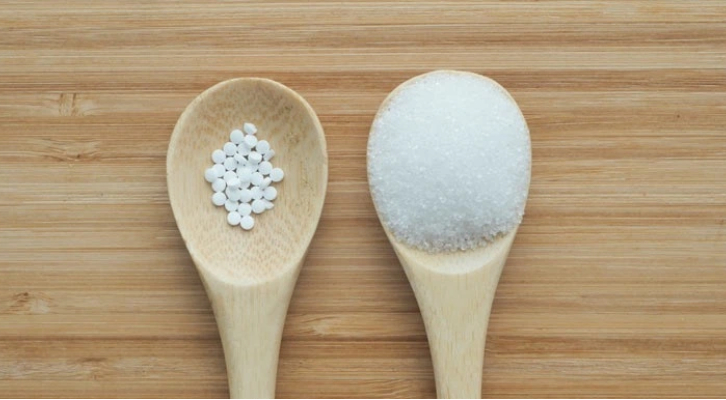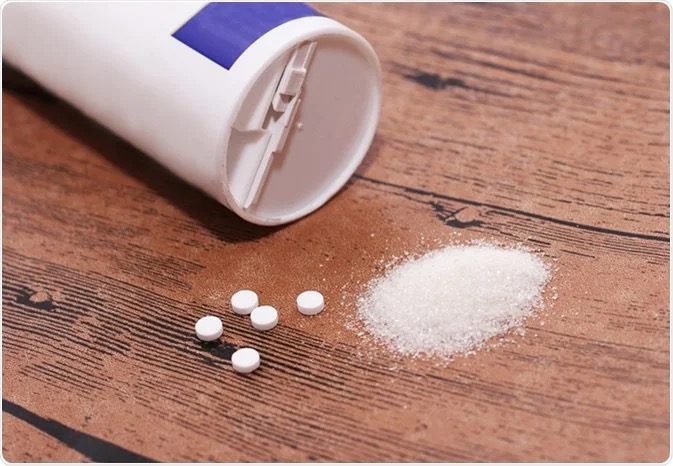







Content Menu
● Why is Aspartame Used in Sodas?
● Popular Sodas That Contain Aspartame
● Sodas That Typically Do Not Contain Aspartame
● How to Identify Aspartame in Beverage Ingredients?
● Health and Safety of Aspartame in Sodas
● Consumer Considerations When Choosing Aspartame-Containing Sodas
● Environmental and Production Notes on Aspartame
● Future Trends in Sweetener Use in Sodas
● FAQ
>> 1. What sodas commonly contain aspartame?
>> 2. Is aspartame safe to consume?
>> 3. How can I know if my soda has aspartame?
>> 4. Are there sodas without aspartame?
>> 5. Who should avoid aspartame?
Aspartame is a widely used artificial sweetener that has become a staple ingredient in many diet and sugar-free sodas across the globe. For decades, it has provided a low-calorie alternative to sugar, allowing consumers to enjoy fizzy drinks without the associated calorie load. In this article, we will explore what sodas contain aspartame, why it's used, health considerations, and answer common questions about this artificial sweetener.

Aspartame is a synthetic non-saccharide sweetener about 200 times sweeter than sucrose (table sugar). Chemically, it is a dipeptide composed of two amino acids: aspartic acid and phenylalanine. Since its discovery in 1965 and FDA approval in 1974, aspartame has become a key ingredient in many low-calorie and sugar-free products. Popular brand names include NutraSweet, Equal, and Canderel.
Aspartame provides sweetness without the added calories of sugar because it is used in such small quantities. It is often combined with other sweeteners like acesulfame potassium to create a taste closer to regular sugar. However, its stability decreases at high pH or high temperatures, making it less suitable for baking or long shelf life products requiring elevated pH.
Aspartame is primarily used in sodas to offer consumers a flavorful beverage with little to no sugar or calories. The rise in health consciousness, diabetes, and obesity has pushed manufacturers to reduce sugar in their products without compromising taste. Aspartame and other artificial sweeteners provide this balance, allowing diet or zero-calorie sodas to mimic the taste of sugary sodas.
Below is a list of widely known sodas that contain aspartame as one of their main sweetening agents. Ingredients may vary by country or region, so always check labels for confirmation.
- Diet Coke: One of the most iconic aspartame-sweetened sodas. Known for its distinct flavor, Diet Coke uses aspartame to provide sweetness without calories.
- Coke Zero Sugar: Sweetened with a blend of aspartame and acesulfame potassium, Coke Zero Sugar offers the taste of Coca-Cola with zero sugar and calories.
- Diet Barq's: This diet root beer variant contains aspartame to reduce sugar content.
- Fanta Zero: The zero-calorie version of Fanta uses aspartame to provide sweetness without sugar.
- Sprite Zero: A sugar-free, no-calorie version of Sprite sweetened partly with aspartame.
- Mello Yello Zero: A zero-calorie citrus soda that includes aspartame.
- Pibb Zero: The diet version of Pibb Xtra uses aspartame.
- Gold Peak Diet Tea: Sweetened with aspartame for a low-calorie taste.
- Seagrams Ginger Ale Zero Sugar: Contains aspartame for sweetness without sugar.
- Minute Maid Light: Reduced-calorie version sweetened with aspartame.
Other popular diet sodas from different brands that commonly contain aspartame include:
- Pepsi Max
- Dr Pepper Zero
- 7Up Zero Sugar
- IRN-BRU Xtra Sugar Free
Some sugar-free or zero-calorie sodas avoid aspartame, instead using alternative sweeteners like sucralose, stevia, or acesulfame potassium. Examples include:
- Tango Sugar Free (uses Sucralose and Acesulfame K)
- Monster Energy Sugar Free (uses Sucralose and Acesulfame K)
- Karma Cola Sugar Free (uses Steviol Glycosides)
- Fentimans Traditional Curiosity Cola (uses Steviol Glycosides)
- Red Bull Sugar Free (uses Sucralose and Acesulfame K)
- Various supermarket brand diet sodas (depending on region and formulation)

The best way to determine if a soda contains aspartame is by checking the ingredient list on the packaging. Aspartame will be clearly listed. Often, products containing aspartame also carry a warning label about phenylalanine for individuals with phenylketonuria (PKU), a rare genetic disorder.
Many manufacturers also provide ingredient information through QR codes on packaging or online ingredient lists.
- Aspartame is one of the most thoroughly researched food additives in the world. Regulatory authorities such as the U.S. Food and Drug Administration (FDA), European Food Safety Authority (EFSA), Health Canada, and the World Health Organization (WHO) affirm the safety of aspartame when consumed within established acceptable daily intake (ADI) limits.
- The acceptable daily intake for aspartame is set at 40–50 mg per kilogram of body weight, which equates to an average adult safely consuming the equivalent of around 14 cans of diet soda daily.
- There has been ongoing debate regarding aspartame's safety, with some studies raising concerns about potential carcinogenic effects. In 2023, the International Agency for Research on Cancer (IARC) classified aspartame as a "possible carcinogen," but other groups including the WHO's Expert Committee on Food Additives maintain that aspartame is safe at current exposure levels.
- Individual health reactions to aspartame vary. Some studies suggest that excessive consumption may be linked to headaches or migraines in susceptible individuals, though evidence is not conclusive. People with phenylketonuria (PKU) must avoid aspartame because it contains phenylalanine.
- More recent research from cohort studies shows mixed results: some observed no increase in cancer or neurological risks, while others noted slight elevations in risks for certain cancers or cardiovascular events with very high aspartame consumption, though causation has not been firmly established. Continued study is necessary.
- Experts generally agree that moderate consumption of aspartame as part of a balanced diet is safe for most people. For those concerned about health effects, limiting intake or choosing alternative sweeteners may be preferable.
When selecting sodas, consumers should consider several factors related to aspartame:
- Caloric Intake and Weight Management: Aspartame-sweetened sodas provide sweetness without calories, making them attractive for weight management or diabetes control.
- Taste Preferences: Some consumers notice a different aftertaste in sodas with aspartame compared to sugar or other artificial sweeteners.
- Health Conditions: Those with PKU or sensitivity to artificial sweeteners should avoid aspartame.
- Regulatory Guidance: Following guidelines on acceptable daily intake can help ensure safety.
For consumers looking to reduce calorie intake but retain soda flavors, aspartame-containing diet sodas remain a popular choice.
Aspartame is produced through chemical synthesis involving its amino acid components. It is widely manufactured and used globally, including in blends with other sweeteners to optimize taste and stability.
Compared to sugar production, aspartame manufacturing has a different environmental footprint, often less intensive in land and water use but relying on industrial chemical processes.
The beverage industry continues to innovate in sweetener use due to consumer demand for natural, low-calorie options. Aspartame remains widely used because of its sweetness profile and cost-effectiveness, but interest in alternative natural sweeteners like stevia and monk fruit is rising.
Regulations and scientific discoveries will likely influence sweetener formulations, balancing taste, safety, and consumer preference.
Aspartame remains a popular sweetener in many diet and zero-calorie sodas worldwide, including iconic brands like Diet Coke and Coke Zero Sugar. It allows consumers to enjoy sweet-tasting beverages without the calories and blood sugar impact of regular sugar. While some health concerns have been raised, regulatory agencies consistently recognize aspartame's safety within established limits. Ongoing research continues to examine potential health impacts at high consumption levels. Consumers should check product labels carefully if they have specific dietary concerns or health conditions like phenylketonuria.

Common sodas with aspartame include Diet Coke, Coke Zero Sugar, Fanta Zero, Sprite Zero, Pepsi Max, Dr Pepper Zero, and 7Up Zero Sugar.
Yes, aspartame is considered safe by major health organizations when consumed within the acceptable daily intake limits. Ongoing research monitors its safety continuously.
Check the ingredient list on the soda's packaging. Products with aspartame usually have a label warning for phenylalanine for people with PKU.
Yes, many diet sodas use alternatives such as sucralose or stevia instead of aspartame, including some flavors of Tango Sugar Free and Red Bull Sugar Free.
People with the rare genetic disorder phenylketonuria (PKU) must avoid aspartame because it contains phenylalanine, which they cannot metabolize.
[1](https://pmc.ncbi.nlm.nih.gov/articles/PMC10459792/)
[2](https://hsph.harvard.edu/news/aspartame-cancer-risk-unclear/)
[3](https://pmc.ncbi.nlm.nih.gov/articles/PMC8227014/)
[4](https://www.fda.gov/food/food-additives-petitions/aspartame-and-other-sweeteners-food)
[5](https://www.who.int/news/item/14-07-2023-aspartame-hazard-and-risk-assessment-results-released)
[6](https://www.cancer.org/cancer/risk-prevention/chemicals/aspartame.html)
[7](https://sph.umich.edu/news/2023posts/aspartame-and-cancer-a-toxicologists-take.html)
[8](https://www.cityofhope.org/orange-county/blog/aspartame-and-cancer-risk)
[9](https://www.sciencedirect.com/science/article/pii/S2590113323000202)
